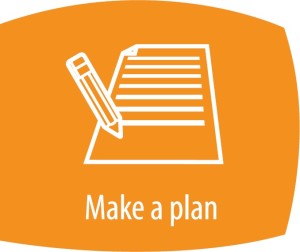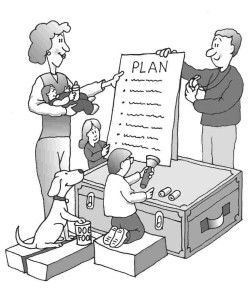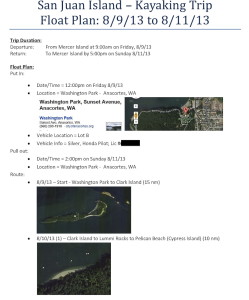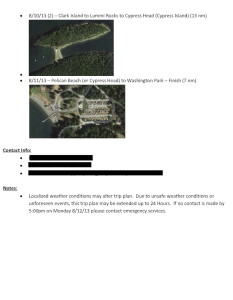 Planning should start with the most likely scenarios first. Yes, it’s much more exciting to discuss how we plan to survive “the end of the world as we know it”, and while those eventualities are possible — they’re just not real probable. Think of the smaller “disasters” in your life that are far more probable: getting lost, a flat tire in an unsafe location, losing your cell phone, credit/debit card not working, getting in a car crash, and the list goes on. While these are not typically the disasters we discuss as preppers, they are the events that are more likely to happen in our lives.
Planning should start with the most likely scenarios first. Yes, it’s much more exciting to discuss how we plan to survive “the end of the world as we know it”, and while those eventualities are possible — they’re just not real probable. Think of the smaller “disasters” in your life that are far more probable: getting lost, a flat tire in an unsafe location, losing your cell phone, credit/debit card not working, getting in a car crash, and the list goes on. While these are not typically the disasters we discuss as preppers, they are the events that are more likely to happen in our lives.
The first step, when preparing for any potential  disaster, is having a plan. In the military they’d say, “The reason why things aren’t going exactly according to plan, is that there never was a plan.” Think through likely emergencies/disasters that might just affect you personally, then ones that would only affect your family, then neighborhood, then local area, then wide-spread area and come up with plans to deal with them. Start small, write the important ones down and discuss them with your family.
disaster, is having a plan. In the military they’d say, “The reason why things aren’t going exactly according to plan, is that there never was a plan.” Think through likely emergencies/disasters that might just affect you personally, then ones that would only affect your family, then neighborhood, then local area, then wide-spread area and come up with plans to deal with them. Start small, write the important ones down and discuss them with your family.
Anyone who’s been prepping for very long knows that it can become expense. It doesn’t have to, but it frequently does as we stockpile extra basic needs and all the related paraphernalia. The one big part of prepping that doesn’t cost any money, is making a plan.
Recently this point was again illustrated to me when Sarah’s brother went on a multi-day kayaking trip around the San Juan Islands. His friend put together a “Float Plan”, detailing their duration, timeframe, route, distances, destinations, contact info, and concluded with some contingency situations and when to contact emergency services if necessary (see below). It was very detailed, yet at the same time, very simple.
Putting something together like this costs nothing but a little bit of time. You’ve already done the research for the trip, so it’s just a matter of correlating it and sending it to someone(s) on your In Case of Emergency (I.C.E.) list.
It’s the relatively minor, day to day things–that we can do something about–that are likely going to cause us the biggest problems, plan for them first. Once you have them all accounted for, then tackle the apocalypse.
[<click> to see their Float Plan (personal data blacked out)]



Well said. Have a hike/flight/float plan and post it visibly. Hubby and I learned this the hard way about two weeks ago. While I was at work (on a particularly grueling shift) a few weeks ago, my husband got lost in the wilderness on our new property for SEVEN HOURS. He stumbled home at about 8:30 PM, in the mid-stages of heat stroke. Had I not been at home at that point (to supply life-saving beef broth, hey – it’s all I had handy) the outcome could have been much different. Luckily for us, we both have a rule to never leave the house without a Camelbak full of water, and a compass (the latter of which he’d forgotten that day). Never ‘assume’ preparedness – I almost became a widow that day because of false complacency.